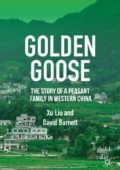Abstract
Ze was the youngest of his family, and his mother died during the famine of 1958–60. He was adopted by his uncle who lived in the town, which resulted in him being granted a city household registration and the opportunity of education in a town school. When Ze was 16, the Cultural Revolution resulted in many students travelling to the cities in support of Chairman Mao. Later, along with many of these Red Guards, Ze was sent down to the countryside. However, his early life in the countryside enabled him to adapt well to village life, and he eventually married Shun. Ze was appointed manager of the commune shop.
Access this chapter
Tax calculation will be finalised at checkout
Purchases are for personal use only
Notes
- 1.
Feng shui is a Chinese philosophical system of harmonizing everyone with the surrounding environment, and is closely linked to Taoism. Historically, feng shui was widely used to orientate buildings, and especially those of a spiritual significance such as tombs. Feng shui was suppressed during the Cultural Revolution, but has since then regained popularity.
- 2.
Household registration.
- 3.
Educated youth were sent to the countryside for several reasons. First, high urban unemployment was a major problem. Second, the highly centralized and unified planned economy restricted openings for young people to find employment in cities. Third, as the country began the policy of “agriculture-based, industrial-oriented” economic development, agriculture was in the forefront of the process. So a large number of educated youth were encouraged to go to the countryside to help farmers increase the agricultural production needed for the planned growth. Finally, once the Red Guard movement began in the spring of 1968, it was difficult to control and began to cause chaos nationally. The Red Guards had to be dispersed to ensure the stability of the cities. A report in the People’s Daily in December 22, 1968 quoted Mao Zedong as saying, “It is necessary that the educated youth are sent to the countryside to be re-educated by the peasants.”
- 4.
Food ration tickets were common in China from 1955 until 1993.
- 5.
The Gang of Four (四人帮) consisted of Chinese Communist Party officials who controlled the main organs of the Communist Party throughout the later stages of the Cultural Revolution. The gang’s leading figures were Mao Zedong’s last wife Jiang Qing, Zhang Chunqiao, Yao Wenyuan, and Wang Hongwen. It still remains unclear which major decisions were made by Mao Zedong and carried out by the Gang, and which were the result of the Gang of Four’s own planning.
- 6.
Hua’s (1921–2008) weak personality and loyalty to Maoism did not inspire the Party now weary of the Cultural Revolution, and he quickly came to be seen as having no real ideas of his own. His slogan “Whatever Chairman Mao said, we will say and whatever Chairman Mao did, we will do” was soon sarcastically referred to as “the Two Whatevers” and became a major reason for his fall from power. Deng Xiaoping became the de facto leader of China as his idea for economic reform was adopted by the Party.
- 7.
The pronunciation of a thousand stitches qian zhen wan xian (literally “thousand needles ten thousand stitches”) sounds like qian en wan xian (literally “thousand kindnesses ten thousand appreciations”).
- 8.
The formal congratulation ceremony is called song zhumi meaning “give congratulations rice”.
Author information
Authors and Affiliations
Rights and permissions
Copyright information
© 2019 The Author(s)
About this chapter
Cite this chapter
Liu, X., Burnett, D. (2019). Ze’s Story: Husband of First Daughter. In: Golden Goose. Palgrave Macmillan, Singapore. https://doi.org/10.1007/978-981-13-3774-1_3
Download citation
DOI: https://doi.org/10.1007/978-981-13-3774-1_3
Published:
Publisher Name: Palgrave Macmillan, Singapore
Print ISBN: 978-981-13-3773-4
Online ISBN: 978-981-13-3774-1
eBook Packages: Economics and FinanceEconomics and Finance (R0)

